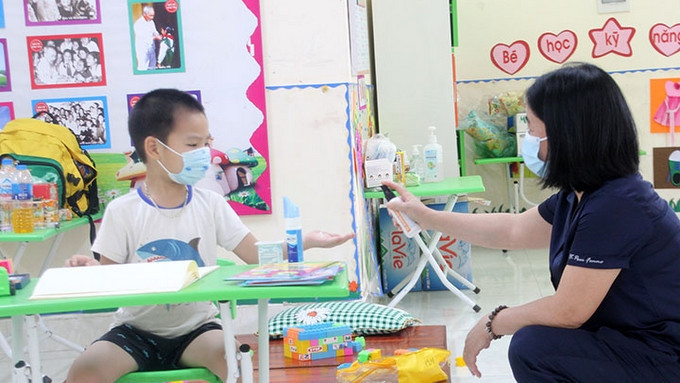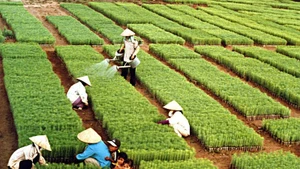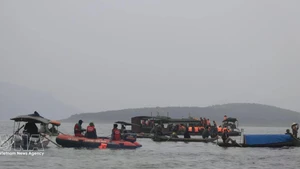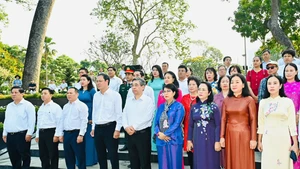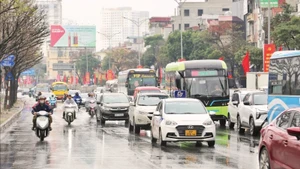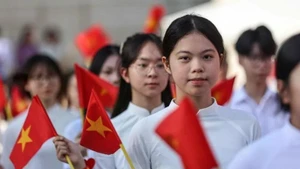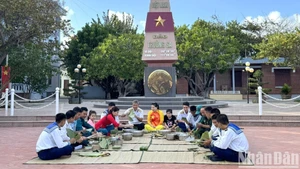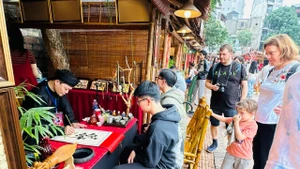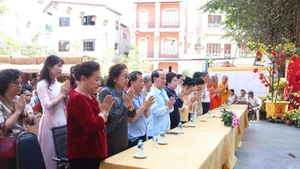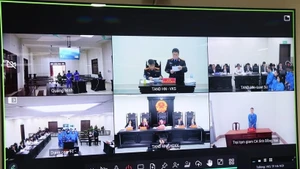Right from the beginning of May, many localities promptly let students leave school and study online at home. Students at all levels experienced the second "COVID season" with many disturbances in learning and living. Especially, the number of children who must be isolated at home in areas under social distancing and concentrated quarantine facilities has continued to increase. Many children were forced to be quarantined far away from home and many others fell into difficult circumstances. In addition to the risk of infection and having to be independent in daily life, they are also at high risk of mental trauma and psychological crisis. According to statistics from the Ministry of Labour, War Invalids and Social Affairs (MoLISA), around 6% of F1 isolated cases are children (around 4,000 children F0 and F1 children). This number is likely to rise due to the increase of quarantines in industrial parks and export processing zones in the coming time.
Facing the above situation, the Department of Child Affairs under the MoLISA has quickly issued a dispatch on strengthening COVID-19 prevention and control for children and ensure their safety amidst the pandemic. Accordingly, the Departments of Labour, War Invalids and Social Affairs in provinces and cities are required to coordinate with functional agencies to update the number and make a list of children’s needs in social distancing areas and centralised quarantine establishments. The departments have used the budgets of the Provincial Funds for Children (if any) or National Fund for Vietnamese Children (NFVC) and other advocacy sources to support nutrition, essential supplies, drugs and supplementary medical products with the motto of “all needy children to receive support in a timely manner”. In addition, the local departments coordinated with local functional agencies to advise the People's Committees of provinces and cities to promptly implement measures to protect children in the context of complicated epidemic ensuring the safety of children and their families as well as to pay strong attention to preventing and combatting the risk of abuse, accidents, injuries and trauma to children and help them stabilise their psychology.
At a nationwide online meeting chaired by Prime Minister Pham Minh Chinh to discuss the situation and urgent solutions to the fight against COVID-19 on May 29, Minister of Labour, War Invalids and Social Affairs Dao Ngoc Dung said that the Ministry and the NFVC decided to provide children aged 0-16 who have been infected with COVID-19 or placed in isolation with free meals worth VND80,000 (US$3.48) per day per child for 21 days. The aid was applied from April 27 to December 31. Notably, the MoLISA and the NFVC gave donations of VND1.2 billion (over US$52.247) each to Bac Giang, Bac Ninh and Dien Binh in prevention and control of the epidemic.
“Joining hands to ensure the implementation of children's rights and protect children amidst natural disasters and epidemic” is also the main message of the Action Month for Children in 2021. In response to the action month, several ministries and agencies have issued documents to direct the deployment of many activities, such as the competition entitled “student with information safety” held by the Ministry of Information and Communications in collaboration with Vietnam Information Security Association and relevant agencies, and the opening of the summer programme for children by the Ho Chi Minh Communist Youth Union (HCYU) Central Committee.
In the context of the complicated development of COVID-19 pandemic, the ministries, agencies and localities, especially the Department of Children Affairs should enhance the communications on skills to prevent and combat child abuse, accident and injury via mass media, social networks and telecommunications networks, as well as protect children in the online environment. The National Child Protection Hotline (111) should be popularised to all families, social community and children. Notably, the localities were asked to promote COVID-19 prevention and control measures and ensure children’s safety amidst the pandemic; continuously update the list of children in social distancing areas and quarantine areas; and effectively use the budget of the NFVC and other sources to support them.
